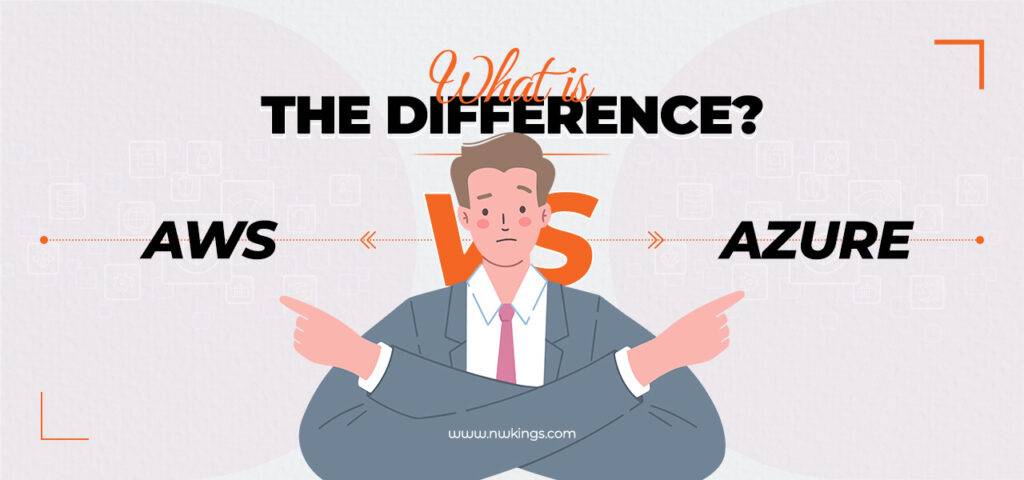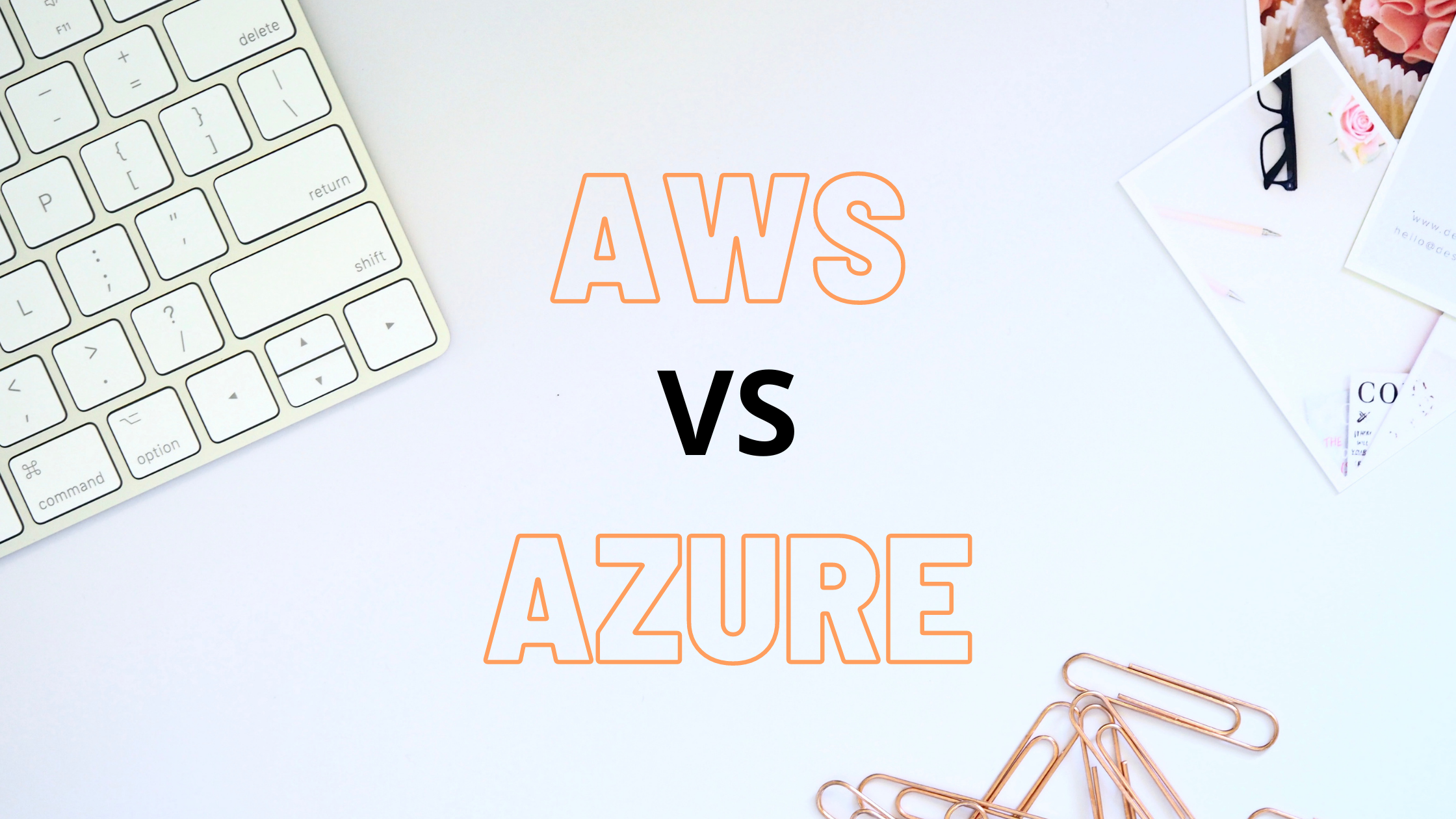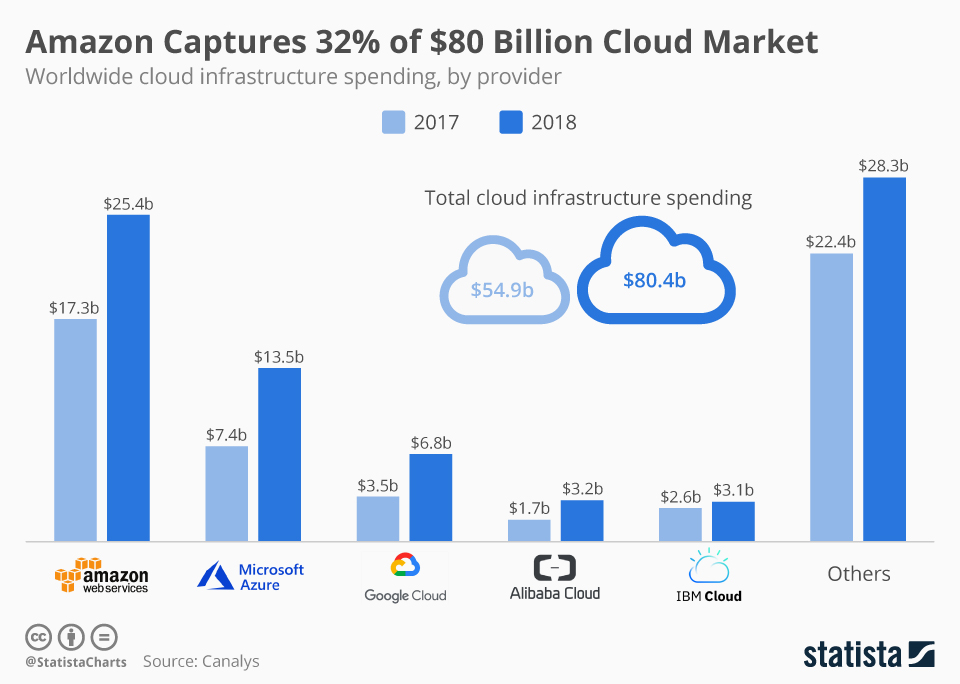In this blog, you will find out which certification course is best for you to pursue AWS Vs Azure. Let’s know the difference, AWS and AZURE are both popular and coveted cloud service providers. Here we’ll try and understand which one is preferred over the other one and why.

AWS vs Azure - Which cloud Course to choose?
DIFFERENTIATING FEATURE | AWS | AZURE |
|---|---|---|
Cost | Applies charges on an hourly basis. | Charges are applied on a per-minute basis. |
Availability Zone | 61 zones | 140 zones |
License | Most flexibility is offered. | Comparatively lesser flexible. |
Compute | Offers a private virtual cloud for computing. | Offers virtual cloud computing not necessarily private. |
| AWS offers better storage. | AZURE is lacking in terms of storage. |
Difficulty Level | The difficulty level is lesser to begin, learn and even get certified. | It has comparatively higher levels of difficulty to learn and gain certifications. |
AWS
Amazon Web Service is a cloud service provider majorly owned by Amazon. It facilitates on demand cloud computing .
Course Detail
AWS is one of the most coveted and the most used platforms as well. The course upskills a candidate enough to elevate his/ her exigency and become indispensable by facilitating cost and time efficiency.
Prerequisite:
Before one starts to take up the AWS course they should be aware of the prerequisite they need to have and avoid any notions and myths.
- Knowing the basics of networking and virtualization.
- Being aware of any programming language.
- Basic command over coding.
- Have an overview of the Private and Public clouds.
AZURE
Azure is a hub of many servers and networking hardware, which facilitates efficient running of a collection of segregated applications.
Course Description
AZURE is a public cloud platform by MICROSOFT. It is employed to manage applications with the means of Microsoft managed data centers. It provides support to many programming tools,frameworks and languages that are specific to Microsoft and to some third party systems and softwares. The certification is provided by Microsoft.
Prerequisites
Candidates appearing for this exam should have subject matter expertise in implementing, managing and monitoring an organization’s Microsoft AZURE environment. The responsibilities one has upon completing AZURE are:
Implementing, managing, and monitoring identity, Governance, Storage, and computing of virtual networks in a cloud environment, plus provision, size, monitoring, and adjusting resources. People wanting to appear for this exam, are expected to have hands-on experience of at least 6 months of administering AZURE, along with an understanding of core AZURE services, workloads, security and governance.
Having known what all, AWS and AZURE have to offer and developing an understanding of the two revered certifications let’s now consider some areas where the two vary and try to derive a comparative evaluation for better understanding and also being able to elucidate the difference in the time of need to choose amongst the two.
With the industry rising each day so with the rise of market leaders is caused. Certain companies have set the standard so high that they have become the ultimate benchmark for excellence.
The two service providers had a great technological foundation, and expertise to aid anything needed in their area of work.
Following are the few areas where we shall discuss the variations:
Content Delivery Network
Firstly, content delivery is a web-like spread network of servers that carry out the delivery of content to various users.
- AWS- Amazon Web Services
AWS uses CloudFront as the content delivery network. It is easy to initiate and integration can also be done using simple storage. The price offered by AWS is comparatively lesser and benefits startups the most.
- AZURE- Microsoft Azure
AZURE content delivery network gives way to developers to deliver efficiently and in less time, along with real-time analytics, and high-bandwidth content. It is efficient enough to speed up dynamic content.
Storage
AWS:
AWS is considered to have a better offering than AZURE in matters of storage. AWS possesses a Simple Storage Service which is employed to carry out object storage and delivery. Storage is allocated at the start and it gets destroyed when the instance is terminated.
AZURE:
AZURE offers block storage that can be attached or removed by the instance quite similar to a hard disk. It supports Big Data, relational and NoSQL Databases.
Compute
This feature is provided by most cloud computing.
AWS: AWS employs a virtual private cloud for networking and gets an API gateway to establish cross-premises connectivity. AWS also employs Elastic load balancing for load balance during networking.
Azure employs a network that is virtual to facilitate networking and content delivery. It also uses VPN gateway to have smooth connectivity across premisis. Load balancing during content delivery is managed with a load balancer and application gateway.
License
AWS: AWS offers far more flexibility than any other service provider at the moment in the market, hence enjoys popularity.
AZURE: Azure hasn’t been able to offer the same kind of flexibility although it’s trying to catch up with AWS. Having said that it hasn’t had any otherwise impact on the number of enterprises going for it.
Cost efficiency
AWS: AWS charges users on an hourly basis which overall makes it more cost-efficient.
AZURE: Azure has a pricing model of per minute charge which in the long run proves to be more expensive when compared to AWS.
Efficient Working
AWS: AWS is better-prized than Azure but it offers lesser flexibility in cases of short-term subscriptions. It also provides direct connections.
AZURE: AZURE offers unmatched flexibility but the pricing is more when compared to AWS. Although AZURE offers far more hybrid cloud support than AWS. Azure establishes connections by the means of routing.
Availability Zone
AWS: AWS provides security by specified roles with access management. AWS offers a private cloud. The number of availability zones in AWS is 61 which is lower than Azure.
AZURE: Azure facilitates security by granting rights to the entire account, unlike AWS. Azure has a virtual cloud network and not a private cloud. When talking of availability zones there are about 140 of them which is way higher than AWS.
Difficulty Level
AZURE: It has been noted from the reviews received from people using azure that it is comparatively harder to get a hang of, though it aids efficiency at all times.
AWS: AWS unlike AZURE has been described as simpler to use, and learn and even the certification has been described as competitively easier.
Conclusion:
AZURE and AWS both can be daunting if one is trying to learn the platforms without having any prior knowledge. But after enough guidance and research one can achieve expertise. Although users have claimed that AWS has been easier and bereft of the complexities that are to be faced in AZURE.
FAQs:
AWS is preferred over AZURE as the former has been existent for more years and due to that there happens to be more infra etc. They have been efficiently using the same to level up and upgrade consistently. Whereas AZURE has been trying to do the same and is slowly getting there but happens to be struggling for now in comparison to AWS.
Contents. Amazon’s AWS and Microsoft’s Azure are the big boys of the cloud computing world, even though AWS is much bigger than Azure. How much bigger?
Both AWS and Microsoft Azure provide similar services but both are thriving to come first. From the AWS vs Azure comparison, It is stated that AWS enjoys more popularity.
This can be subjective if you’re trying to hunt for a job as each other offers unique skillsets, so it’s important to know which skill set is needed in your job and then choose accordingly.
As per research AWS happens to have more paying jobs with an average of $ 106, 210 USD in all job profiles. Whereas AZURE has comparatively less paying jobs ie. $96,649 USD in all job profiles.
No, when compared to which of the clouds is easier to learn, it has to be AWS. The online training material for AWS is much better than that for AZURE.
AWS is more popular than azure as the former has been in the market for a longer duration now. It is easier to learn in comparison to azure. The learning material online for AWS is also better for learners.
Yes, Netflix uses AWS, for nearly all, its functions like computing and storage. It also employs AWS for its databases and analytics etc.
Yes. AWS is cheaper than AZURE.
No, to get started with AWS one, doesn’t need to be well versed with coding. But depending on the job role one is applying for he/she may need to acquire some skills
No. Learning AZURE as a platform doesn’t need any coding as a prerequisite.
One factor that makes AZURE better than AWS is cloud support. AZURE happens to offer a much better hybrid cloud support than AWS.
Yes, Facebook, now known as Meta uses AWS for complementing its on-premises infra. Though they have plans on shifting to the biggest cloud service provider.
Cost efficiency and also word of mouth both play a pivotal role in making its users go higher in comparison.
Yes, AZURE jobs are in demand and also the job profiles are high paying as well.




